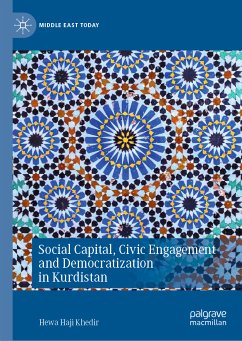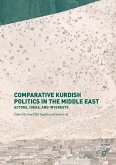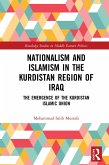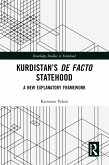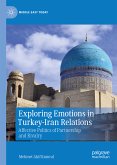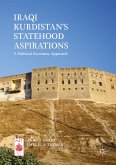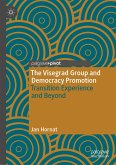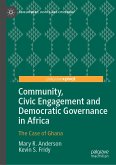- Alex Danilovich, Senior Associate, Institute on Governance, Ottawa, Canada
'The simplistic importation of "democratic devices" such as parliaments, as Hewa Haji Khedir demonstrates here in this detailed analysis, is not the same as democratisation. ... The lack of sufficient societal trust and effective civil literacy and communications to foster it all undermines the development of adequate mechanisms for accountability, and without accountability there can be no democracy.'
- Pippa Catterall, Professor of History and Policy, University of Westminster, London, UK
This book examines social capital and transition to democracy in Kurdistan. By utilizing the Social Capital Theory, the project presents a different perspective on challenges that surrounded the process of transition to democracy in KRI. The work is based on a bottom-up approach as it unpacks the influences of political culture on the function of democratic institutions and norms in a conflicting context. The author splits the concept of social capital into three main components: trust, social networks and civic engagement and tests them empirically in the context of KRI. The monograph will interest graduate students, researchers and policy makers in the fields of political science, sociology and Middle Eastern Studies.
Hewa Haji Khedir is currently a Researcher at the Centre for Religion, Reconciliation and Peace (CRRP) at the University of Winchester, UK. He received his Ph.D. in Social Sciences from the University of Kurdistan Hewler (UKH) in 2013. Before moving to the UK, Dr. Khedir was an Assistant Professor of Political Sociology at Salahaddin University - Erbil and served as a Visiting Professor at a number of universities in the Kurdistan Region, Iraq. Dr. Khedir's research focuses on communal relations and prejudice, peacebuilding and reconciliation, urbanization and social capital and transition to democracy.
Dieser Download kann aus rechtlichen Gründen nur mit Rechnungsadresse in A, B, BG, CY, CZ, D, DK, EW, E, FIN, F, GR, HR, H, IRL, I, LT, L, LR, M, NL, PL, P, R, S, SLO, SK ausgeliefert werden.

